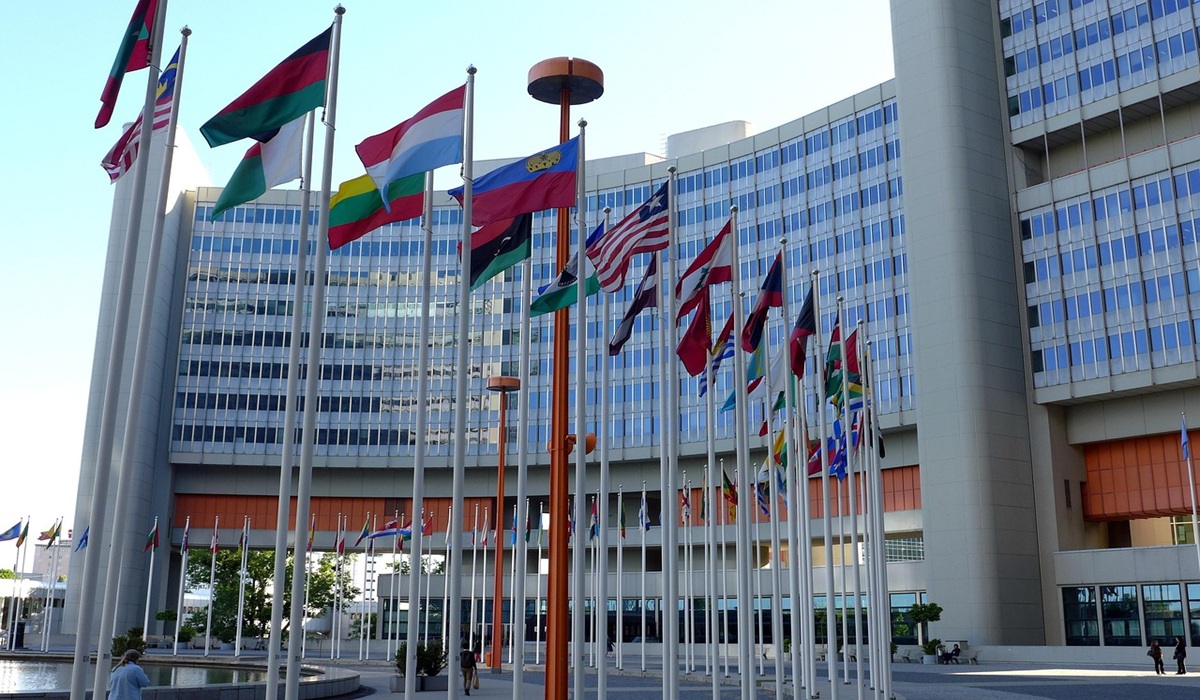“There is total immunity for presidents attending the Assembly, and the U.S. government cannot condition the opinion of the U.S. The fact that the Palestinian Authority was not allowed entry and that my visa was revoked for asking the U.S. and Israeli armies not to support a genocide, which is a crime against all of humanity, demonstrates that the U.S. government no longer complies with international law. The United Nations headquarters cannot continue to be in New York.”
This powerful statement highlights a long-simmering issue that the international community has avoided confronting: should the United Nations remain headquartered in the United States?
When the UN was founded in 1945, placing its headquarters in New York carried symbolic weight. It was a moment of optimism after World War II, when the U.S. emerged as the dominant power promising to uphold international peace and justice. The location seemed fitting—a new world order, with America at its center, projecting stability and openness. But eighty years later, the very premise that once made New York the logical choice is unraveling.
The credibility of the United Nations relies on one principle above all others: neutrality. The world body must remain independent of any single nation’s political whims. Yet when delegates are denied entry, visas revoked, and voices silenced based on U.S. domestic or foreign policy priorities, neutrality evaporates. The headquarters becomes less a sanctuary for global diplomacy and more a fortress guarded by American interests.
Critics have long noted this tension. Over the years, various leaders have complained of restrictions, surveillance, or harassment while in New York. But the refusal to grant entry to representatives of the Palestinian Authority, coupled with punishment for speaking out against alleged war crimes, crosses a line. It exposes a glaring contradiction: the U.S. hosts the UN but undermines the very universality that the institution represents.
Moving the headquarters would not be a simple gesture. It would be a seismic shift in global diplomacy. Yet it may also be the only way to restore trust. Placing the UN in a genuinely neutral, central location—perhaps Geneva, Vienna, or even a new host nation specifically chosen for impartiality—would send a clear signal that the body exists above national politics. Countries as diverse as Switzerland, Costa Rica, or even Iceland have been suggested in the past as neutral grounds where diplomacy could thrive free of the shadow of a superpower’s influence.
Beyond symbolism, relocation could also resolve practical concerns. Security costs for the UN in New York are astronomical, borne largely by U.S. taxpayers, who increasingly resent the institution. Diplomats often face surveillance, restrictions on travel beyond a small radius of New York, and complications with visas. These barriers make it harder for smaller or politically isolated nations to participate on equal footing. A move to a more neutral host country could lower tensions, reduce costs, and remove the perception that America is gatekeeping the international stage.
Of course, Washington would fight tooth and nail to keep the headquarters. Hosting the UN is not only a matter of prestige but also influence. It ensures that the world’s most important diplomatic traffic flows through U.S. soil. It gives American authorities an unmatched level of oversight and soft power. Losing that leverage would be seen by many in Washington as a symbolic retreat from global leadership. But perhaps that is precisely the point: the UN should not exist to serve Washington’s leadership. It should exist to serve humanity.
This debate is not about diminishing America’s role in the world. It is about re-centering the UN’s role. The United Nations cannot continue to project itself as the beacon of international law and justice if its very home is subject to one nation’s veto over who may speak. By remaining in New York, the institution accepts the risk of becoming hostage to U.S. foreign policy. By moving, it reclaims independence.
The quote that sparked this debate should be taken as a warning. When voices are silenced at the UN, it is not just a violation of diplomatic protocol—it is an erosion of the very foundation on which the body stands. If the United Nations is truly to embody the principle of equality among nations, it may be time for its members to confront the unthinkable: relocating the headquarters to a neutral ground, where no country can claim ownership of humanity’s only universal forum for peace.
History has shown that institutions survive only when they evolve with the times. Perhaps now, nearly a century after its founding, it is time for the United Nations to evolve once again—not in rhetoric, but in geography.









